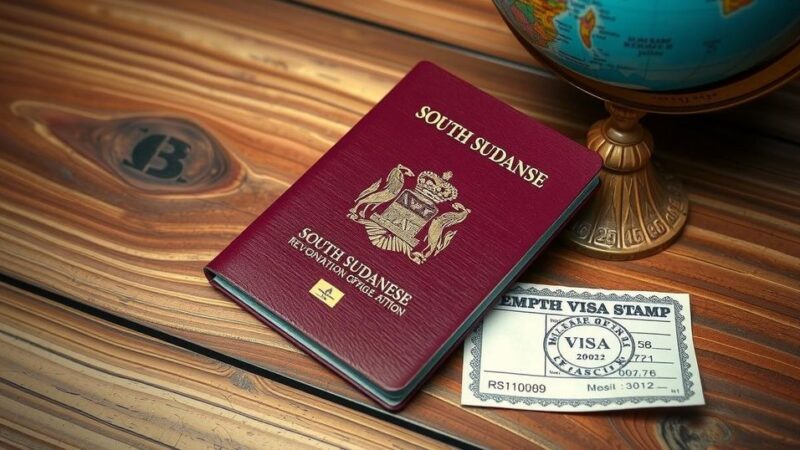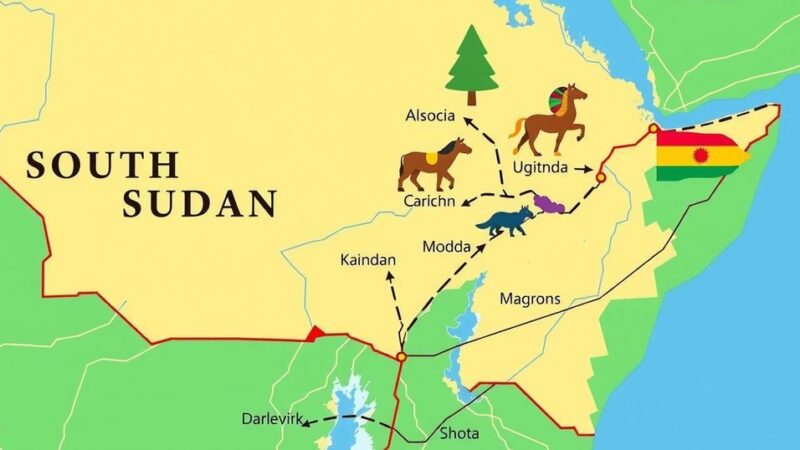Houthi Foreign Minister Jamal Amer claims that Yemen is at war with the U.S., warning Gulf states to remain neutral. Despite U.S. airstrikes, he vows to continue attacks on Israeli-linked ships. Iran allegedly urged de-escalation, yet Amer asserted Houthi independence in decision-making and predicted likely escalations, especially if Gulf states intervene.
In a recent statement, Jamal Amer, the foreign minister of the Houthi-led government in Yemen, declared that the Houthis are effectively at war with the United States amid ongoing U.S. airstrikes. Amer emphasized that escalations in the conflict are likely, as he urged Gulf states, particularly Saudi Arabia and the UAE, to remain neutral in this crisis, acknowledging their current stance of non-interference.
The reports indicate that Iran, the Houthis’ principal ally, has delivered messages to the rebel group asking for a de-escalation of tensions. This communication occurred after the Houthis announced a resumption of attacks on Israeli-linked vessels in the Red Sea, citing retaliation for the blockade on aid to Gaza. Although Tehran has not officially confirmed these messages, they appear to want to maintain the Houthis’ autonomy in decision-making.
In an interview, Amer asserted that there would be no reduction of operations against Israeli-linked ships, regardless of any pressure from Washington or requests from Iran. He stated, “There will be no talk of any dialing down of operations before ending the aid blockade in Gaza.” Amer dismissed any notion that Iran was dictating the Houthis’ actions and expressed that escalation was necessary for self-defense.
Amer contended that the U.S. is aggravating the situation, claiming that Houthi attacks have only targeted Israeli-affiliated vessels, and accused the U.S. of unwarranted retaliation. He acknowledged the current neutral stance of Saudi Arabia and other Gulf states but warned against military intervention, stating, “If any aircraft or base is used against us then we will escalate and we will defend ourselves.”
These comments followed U.S. President Donald Trump’s stern warning directed at Iran, alleging its support for the Houthis despite Iranian denials. Trump stated, “Every shot fired by the Houthis will be looked upon as being a shot fired from the weapons and leadership of IRAN,” which further heightened the tension.
Since the inception of U.S. airstrikes, the Houthis have significantly impacted international shipping, prompting global trade disruptions. Washington maintains that the objective of their military actions is not to overthrow the Houthi regime, but rather to compel an end to their aggressive activities, with the Pentagon indicating that assaults may continue if the Houthis do not cease hostilities.
The situation in Yemen represents a complex geopolitical conflict involving the Houthis, the United States, and Gulf states, with significant implications for regional security. Jamal Amer’s assertion of war against the U.S. signals a potential for increased hostilities, especially if Gulf states choose to intervene. As the U.S. adopts a cautious approach in its military strategy, the international community watches closely for the next developments in this escalating crisis.
Original Source: www.ynetnews.com






